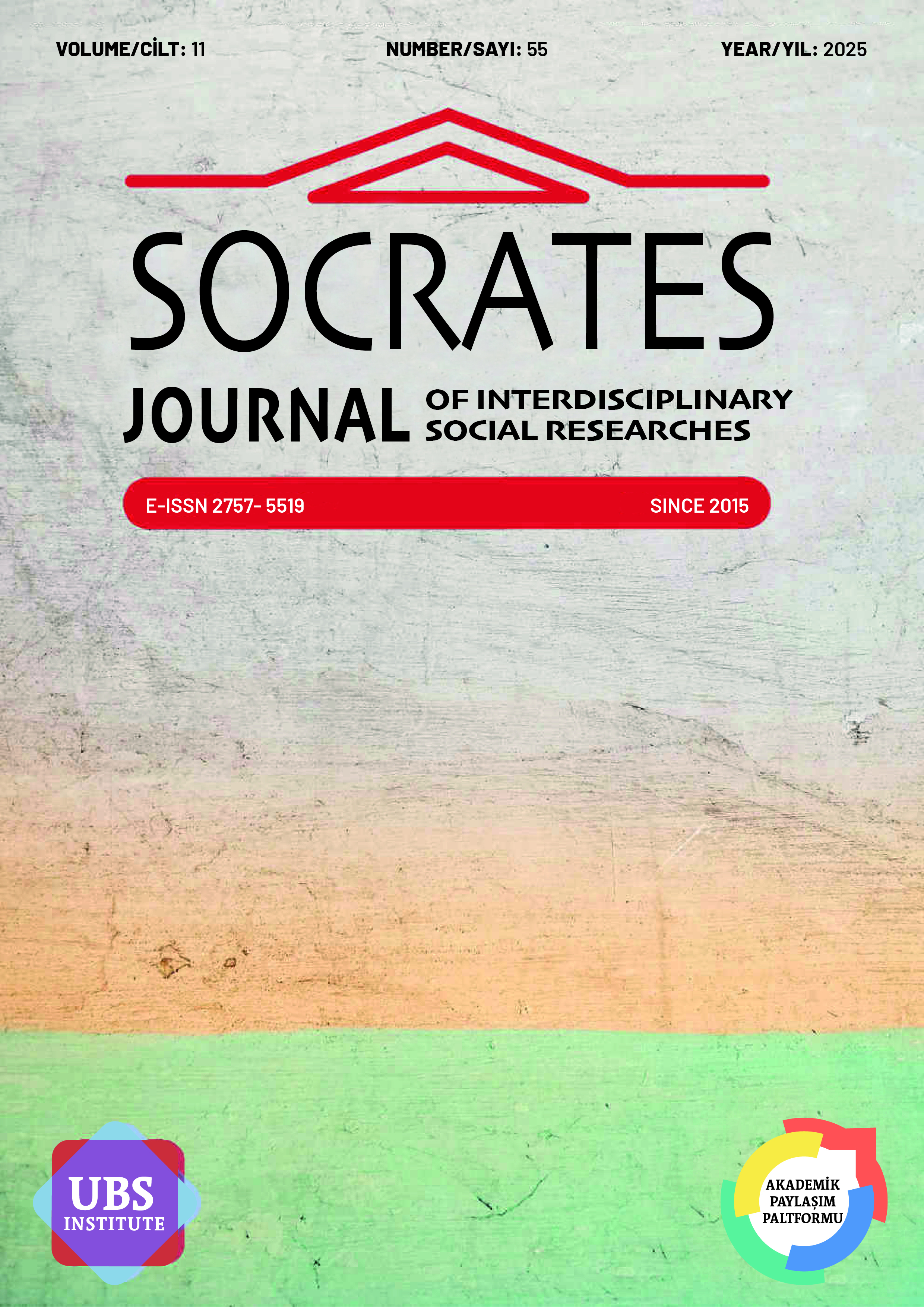EDUCATIONAL CHALLENGES OF TURKISH-SPEAKING HIGH SCHOOL STUDENTS IN KOSOVO DURING THE COVID-19 PANDEMIC
KOSOVA’DAKİ TÜRKÇE KONUŞAN LİSE ÖĞRENCİLERİNİN COVID-19 PANDEMİSİ SIRASINDAKİ EĞİTİMSEL ZORLUKLARI
DOI:
https://doi.org/10.5281/zenodo.16319095Keywords:
Turkish-language education, Kosovo, Covid-19, distance learning, minority education, vocational high schools, educational inequalityAbstract
This study examines the educational challenges encountered by Turkish-speaking high school students in Prizren, Kosovo during the Covid-19 pandemic, within the broader context of a multilingual and structurally fragmented education system. Utilizing a qualitative research design, data were collected through semi-structured interviews with 15 students selected from four high schools using purposive and criterion sampling techniques during the 2020–2021 academic year. The research aimed to understand students’ experiences with both online and group-based in-person education, which were implemented in response to pandemic conditions.
In the early stages of the pandemic, the Ministry of Education, Science, Technology and Innovation (MAShTI) adopted a centralized online education model for primary and lower secondary levels through national television channels (RTK 1 and RTK 4), the official e-learning platform (emesimi.rks-gov.net), and open-access digital resources. However, for upper secondary education, a decentralized model was introduced, where individual schools and teachers were responsible for organizing distance learning, often through applications like Zoom, Google Meet, and Facebook groups.
Thematic analysis of the interview data revealed that students faced significant challenges, including limited access to technological devices, lack of internet connectivity, reduced instructional time (e.g., shortened 30-minute lessons), and inconsistency in the quality of instruction across staggered student groups. Particularly among students in vocational and medical high schools, the absence of hands-on, practical sessions severely hindered learning outcomes. Furthermore, students expressed dissatisfaction with the instructional effectiveness of teachers during both online and hybrid instruction, citing fatigue, repetition of lessons across groups, and reduced engagement.
These findings indicate that the pandemic exacerbated pre-existing educational inequalities, particularly for Turkish-speaking minorities. The study concludes that urgent structural reforms are needed to enhance educational access, technological readiness, and pedagogical responsiveness in Kosovo’s minority-language education systems, both during crises and in long-term planning.
References
Berg, B. L. (2000). Qualitative research methods for the social sciences. Needham Heights, MA: Pearson Education.
Büyüköztürk, Ş., Çakmak, E. K., Akgün, Ö. E., Karadeniz, Ş., & Demirel, F. (2014). Scientific research methods. Ankara: Pegem Academy.
Can, E. (2020). Coronavirus (COVID-19) pandemic and its pedagogical implications: Distance and open education practices in Turkey. Journal of Open Education Practices and Research, 6(2).
Çiçek, E. İ., Tanhan, A., & Tanrıverdi, S. (2020). COVID-19 and education. Journal of National Education, 49(1), 1091–1104.
Creswell, J. W. (2017). Educational research: Planning, conducting, and evaluating quantitative and qualitative research (H. Ekşi, Trans.). Edam. (Original work published in 2014)
Demirci, S. (2021, May 31). COVID-19 and the state of schools worldwide. Wikipedia. https://tr.wikipedia.org/wiki/COVID-19
Levent, F., & Karaevli, Ö. (2013). Policies for the education of international students and suggestions for Turkey. Journal of Educational Sciences, 38, 97-117.
Ministry of Education, Science, Technology and Innovation. (2020). Distance learning implementation guidelines during the COVID-19 pandemic. Government of the Republic of Kosovo. https://masht.rks-gov.net/
Ministry of Education, Science, Technology and Innovation. (2020). Guidelines for organizing online learning for upper secondary education. Pristina: Government of Kosovo.
OECD. (2015). Education at a glance 2015: OECD indicators. OECD Publishing.
OECD. (2020). The impact of COVID-19 on education: Insights from education at a glance 2020. OECD Publishing. https://www.oecd.org/education/the-impact-of-covid-19-on-education.htm
UNESCO. (2020). COVID-19 educational disruption and response. https://en.unesco.org/covid19/educationresponse
UNICEF. (2020). COVID-19 and education: The impact of the pandemic on education systems. https://www.unicef.org/reports/covid-19-and-education-2020
Yıldırım, A., & Şimşek, H. (2018). Qualitative research methods in social sciences. Ankara: Seçkin Publishing.
Downloads
Published
How to Cite
Issue
Section
License
Copyright (c) 2025 Socrates Journal of Interdisciplinary Social Studies

This work is licensed under a Creative Commons Attribution 4.0 International License.


